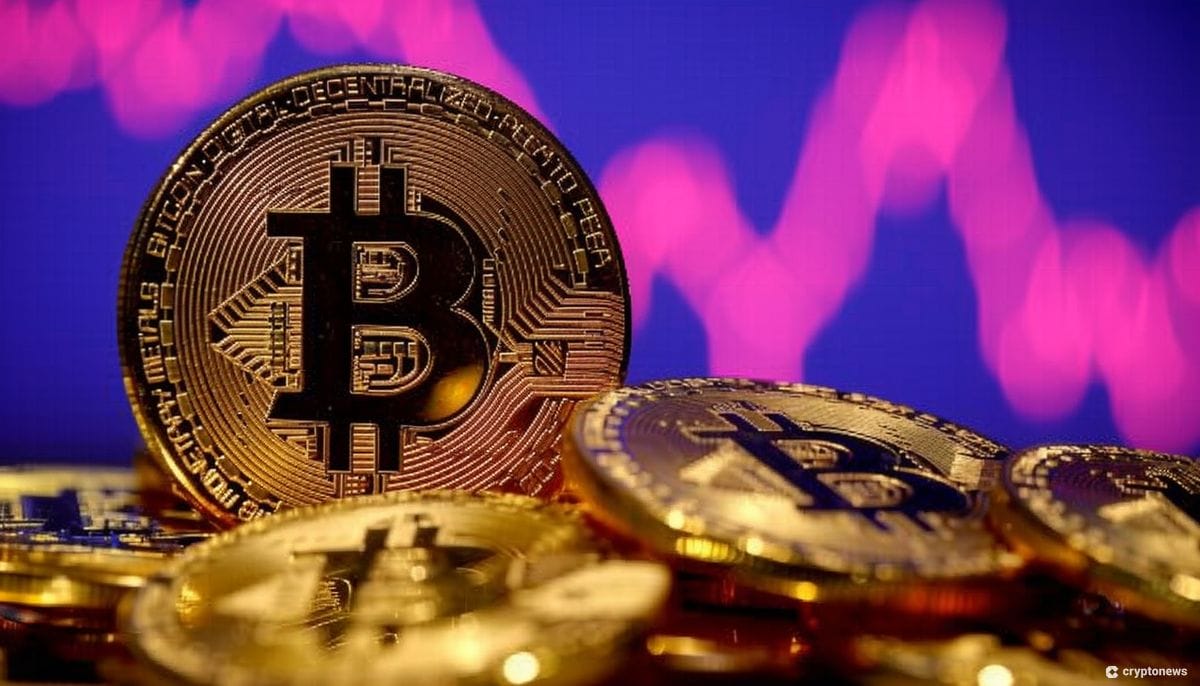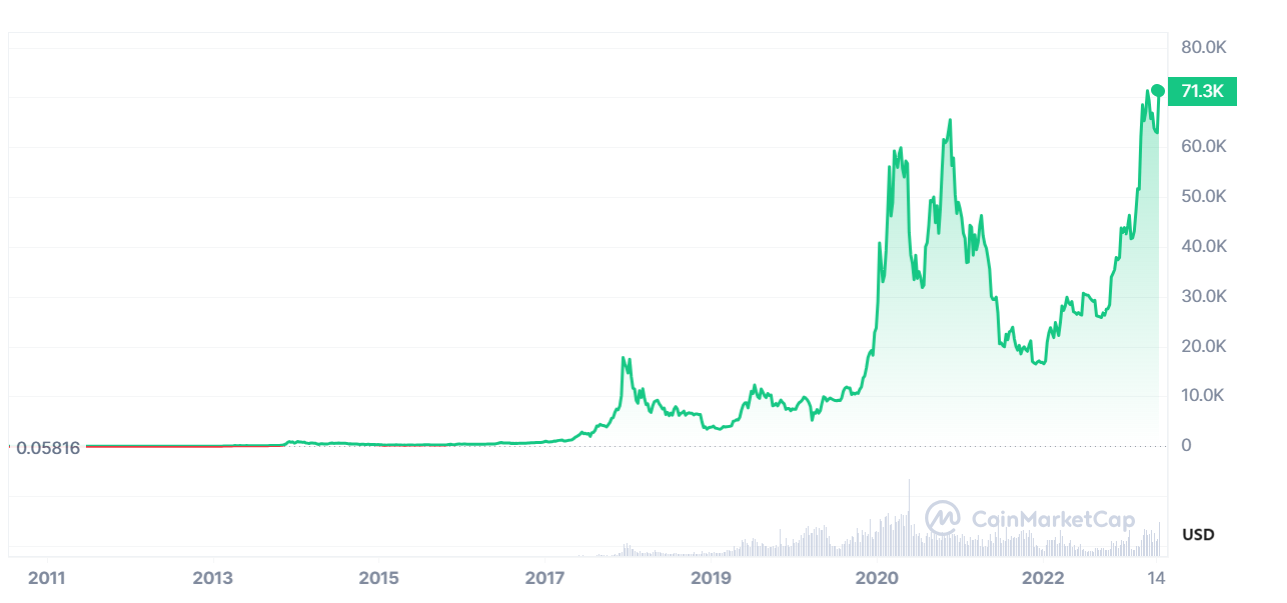Russian Experts Say Bitcoin Bull Market Will Fall Short of 2017 Highs


The current Bitcoin bull market is falling short of the highs of 2017, Russian experts claimed on May 20.
The comments came in a Bitcoin- and crypto-themed report from the Roscongress Foundation, one of Russia’s biggest development-focused NGOs and conference organizers.
‘Bitcoin Bull Market Fever Will Falter’ – Experts Weigh in
The report’s authors claimed that BTC’s new all-time-high peak in March this year was part of a “speculative game” played “against the backdrop of spot Bitcoin ETFs approvals.”
However, March’s sudden growth in Bitcoin prices has since “failed to cause a stir similar to the situation at the end of 2017,” they wrote.
The authors pointed to internet search engine queries “related to cryptocurrencies,” which have “remained well below peak values.”
Michael Novogratz, the founder of Galaxy Digital, said Bitcoin is likely to remain stuck in a relatively narrow trading range for at least the current quarter https://t.co/KuTeCZSVlt
— Bloomberg Crypto (@crypto) May 21, 2024
The authors added that only half as many people worldwide were searching for BTC and crypto-related themes in 2024 as was the case in 2017.
Better Bitcoin Access Thanks to ETF Approval, Say Experts
Experts also noted that analysts had claimed spot Bitcoin ETFs would “make cryptocurrency investments more accessible to a wider range of people.”

But the evidence appears to suggest this has not yet happened, the foundation claimed.
The authors explained that the “mining-based transaction protocols of the Bitcoin network” are an “obstacle” to “full inclusion” in the traditional financial system. The authors wrote:
“Generally, cryptoassets are still a poor fit for full integration in the traditional financial system. The main thing holding back traders is the fact that cryptoassets are not suitable for offsetting.”

In the financial world, offsetting (aka “netting”) refers to “the net presentation of separate assets and liabilities or income and expenses in the financial statements.”
The foundation added that market data shows that most investors still see Bitcoin as a “high-risk asset” in the same vein as “tech stocks.”
Additionally, the authors claimed that BTC is “much more strongly correlated with stock market movements” than with assets like gold. As such, it fits the profile of a “classic high-risk speculative asset.”
Update: @JSeyff and I are increasing our odds of spot Ether ETF approval to 75% (up from 25%), hearing chatter this afternoon that SEC could be doing a 180 on this (increasingly political issue), so now everyone scrambling (like us everyone else assumed they’d be denied). See… https://t.co/gcxgYHz3om
— Eric Balchunas (@EricBalchunas) May 20, 2024
The authors also spoke of a “weak reaction” in the Bitcoin market to the April halving event,” and added:
“The behavior of an asset is increasingly determined by the general level of willingness of financial market participants to take on risks.”
Russian government tells loss-making Gazprom not to pay dividends for 2023 https://t.co/qnqypdsclZ pic.twitter.com/Ww1KwmbToC
— Reuters (@Reuters) May 20, 2024
However, the report was not entirely downbeat about BTC or the effect of spot Bitcoin ETF approval in the United States. The authors wrote that in the long run:
“The emergence of spot bitcoin ETFs will undoubtedly make investing in cryptocurrency more accessible to all market participants.”
But they said temporary price rises were the result of “speculative play” from traders trying to capitalize on the ETF approvals in Washington.
They added that the “range of Bitcoin price forecasts for the end of the year” was “extremely wide.” The authors explained:
“At the top end, the average maximum forecast is $121,764, while the average floor is $50,138.”
Stablecoins Influencing Bitcoin Prices?
The authors also noted that there had been a “growth of the capitalization of stablecoins” since 2017.

And, they said, this has helped spur a Bitcoin bull market in both 2021 and 2024. The authors wrote:
“The first wave of [Bitcoin price] growth in 2017 was caused by the popularization of cryptocurrencies. The second, in 2021, can be explained by a sharp increase in the supply of stablecoins and the transfer of pricing to virtual spaces.”
The experts concluded that the 2024 all-time-high peak was “due” in part to “a restoration of the supply of stablecoins.”
Earlier this month, Russian experts claimed that BTC and altcoin mining were set to grow by 20-40% before the end of the year.






